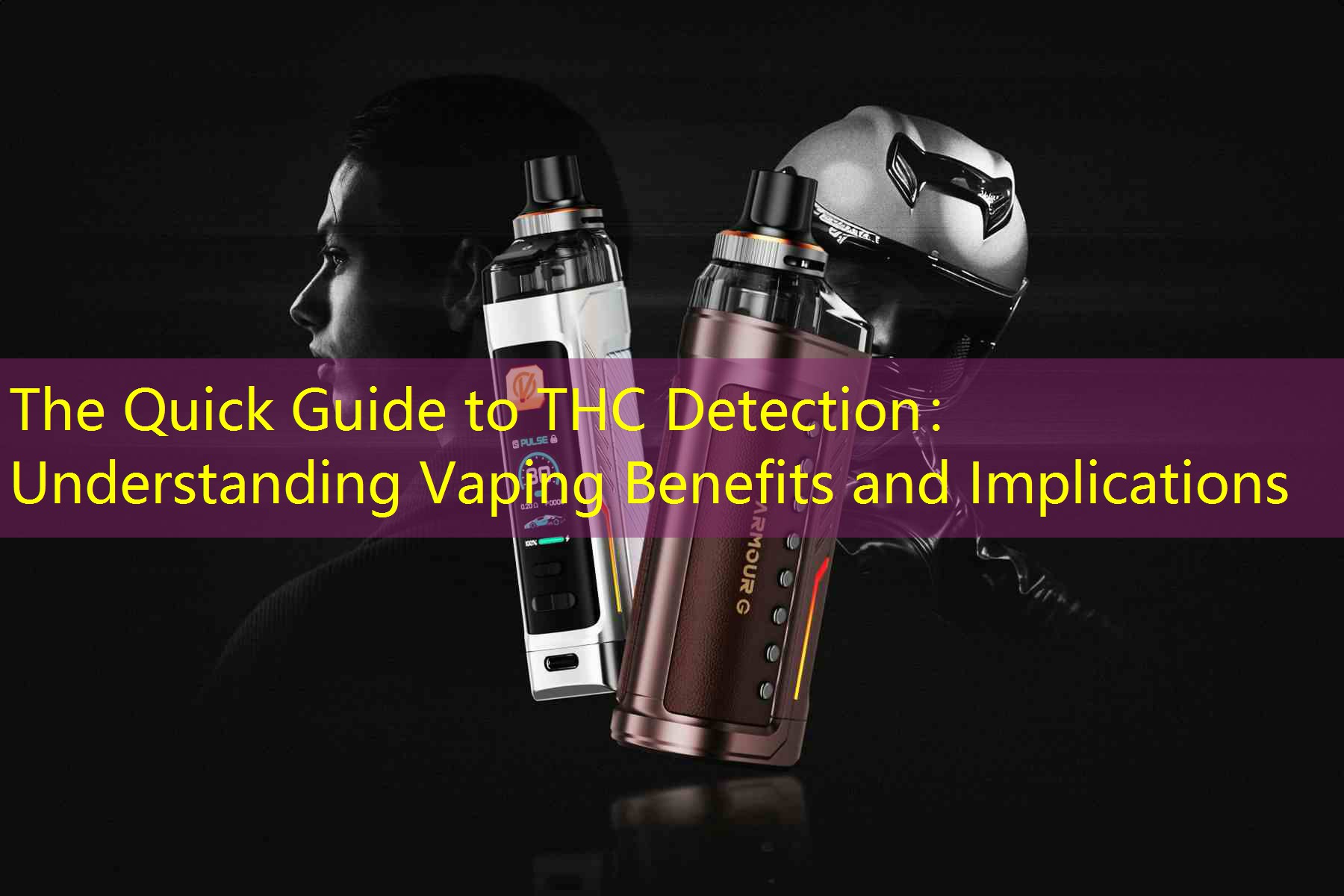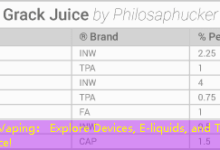Introduction
In recent years, the popularity of vaping, particularly with substances like THC (tetrahydrocannabinol), has risen significantly. As more individuals turn to vaping as a means to consume cannabis, questions arise regarding the effects and the duration substances stay in the body. Specifically, “How long does THC vape stay in your system?” is a pertinent question not only for casual users but also for those who may be subject to drug testing. Understanding the pharmacokinetics of THC when inhaled through a vape can give users insight into their own consumption habits and legal implications. This article aims to thoroughly investigate the duration that THC remains detectable in various parts of the body after vaping, influenced by several factors, and provide a comprehensive overview of what users can expect.
Understanding THC and Vaping
THC is the psychoactive component of cannabis that is primarily responsible for the “high” sensation experienced by users. Vaping THC involves using a device that heats cannabis oil or flower, producing vapor that is inhaled. This method of consumption has become popular due to its perceived health benefits over traditional smoking, including reduced exposure to harmful toxins.
The method of inhalation also affects how quickly THC is absorbed into the bloodstream. When THC is vaped, it enters the system rapidly, often leading to a quicker onset of effects compared to other consumption methods, such as edibles.
Factors Influencing THC Detection Time
The duration THC stays in a user’s system depends on several variables:
1. Frequency of Use: Regular users may find that THC stays in their system longer than infrequent users due to cumulative effects.
2. Metabolism: Individuals with faster metabolic rates process and eliminate THC more quickly than those with slower rates.
3. Body Fat Percentage: THC is lipophilic, meaning it binds to fat cells in the body. Therefore, individuals with higher body fat percentage may retain THC for longer periods.
4. Dosage: Higher doses of THC will take longer to clear from the system compared to smaller amounts.
5. Hydration and Diet: Staying hydrated and having a balanced diet may aid in metabolizing substances more efficiently.
Duration of THC Detection in Various Tests
Detection times for THC can vary widely based on the type of testing method employed. Here’s a breakdown of common testing methods and their respective detection windows:
| Testing Method | Detection Time |
|---|---|
| Urine | 1-30 days |
| Blood | 1-7 days |
| Saliva | 1-3 days |
| Hair | Up to 90 days |
The table illustrates the variability in detection times depending on the type of test conducted.

Metabolic Process of THC
After vaping, THC immediately begins to affect the body. The metabolism of THC is influenced primarily by the liver, where it is converted into various metabolites. The key metabolites include THC-COOH and THC-OH, which are less psychoactive but can be detected in the body for longer periods.
The elimination half-life of THC is generally around 1-3 days for occasional users, while for chronic users, it can extend to 10 days or more. These metabolites are excreted primarily through urine, making urine testing a common method for employers and law enforcement.
Case Studies: THC Detection Times
Understanding real-world applications can shed light on how THC detection works. Below are some anonymous case studies:
Case Study 1: Occasional User
An individual who vaped THC on the weekends found that after a single session, they tested negative for THC in a urine test after five days of abstinence.
Case Study 2: Regular User
A frequent vaper who consumed THC daily reported testing positive for THC in urine even after two weeks of cessation.
These examples highlight the importance of individual differences in THC metabolism and clearance.
Common Questions About THC Detection
How can I flush THC out of my system more quickly?
Some individuals may seek ways to expedite the process of eliminating THC from their body. Staying hydrated is essential, as drinking ample water can aid in the excretion of metabolites. Additionally, adopting healthy eating habits and engaging in physical exercise may boost metabolism, helping to clear THC faster.
Are there specific products that can help eliminate THC?
While the market is filled with detox products claiming to flush THC from the system, the efficacy of these products varies widely. Many of them are not scientifically validated and could potentially lead to false positives on drug tests. The most reliable method remains natural detoxification through abstention, hydration, and healthy lifestyle choices.
What should I know before a drug test?
If you are aware that a drug test is approaching, it is wise to cease all THC consumption well in advance. Understanding the detection windows based on your usage frequency and the specific test utilized can also help you better prepare for any testing situations.
In conclusion, THC’s presence in your system post-vaping is contingent on a myriad of factors including frequency of use, metabolic rate, body composition, and dietary habits. Staying informed about these variables can empower users to make educated decisions about their consumption and the potential risks associated with drug testing.







